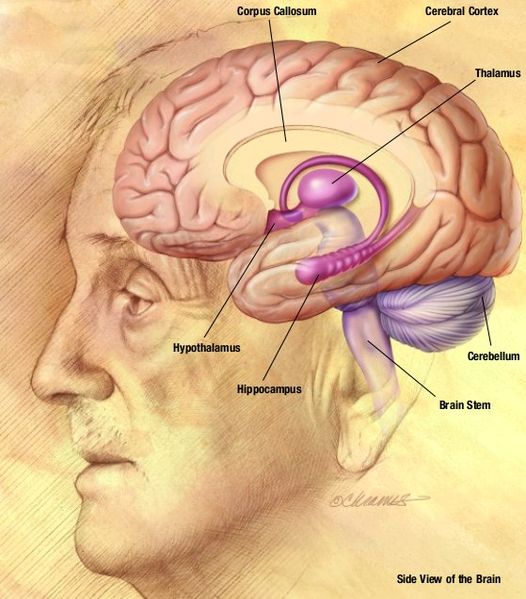| |
CHILDREN NEEDS PARENTS FROM BIRTH THROUGH LIFE....but two working parents in search of wealth have little time for their children...and the result is
Posted by Vishva News Reporter on March 1, 2010 |
.......Children who eat with their
parents......
have more
self-esteem
and better
brain development.....
....says Tomas Paus, a Canadian neuroscientist
who with his colleagues is
charting the changes that take place
in the adolescent brain through brain scans and interviews of
600 volunteers aged 12
to 18 in the Saguenay region of Quebec.....
|

......SELF ESTEEM
IS ABOUT.....
BEING YOUR TRUE SELF THAT
YOU CAME IN THIS LIFE-TRAVEL
WITH CREATOR'S DESIGN
AND
TO PARTAKE YOUR
FRUITS OF OWN kARm
FROM YOUR PREVIOUS
MILLIONS AND BILLIONS OF LIFE-TRAVELS....
.........as is proved in the
following famous quotes on self esteem....
"Do not wish to be anything but what you are,
and try to be that
perfectly."
~ St. Francis De Sales
"Listen to your heart above all other voices."
~ Marta Kagan
"Be yourself.
There is something that you can do better than any
other.
Listen to the inward voice and bravely obey that."
~ Unknown Author
"Always be a first-rate version of yourself,
instead of a second-rate version of somebody else."
~ Judy Garland
 
THE HUMAN BRAIN/MIND
FROM WHERE SELF ESTEEM COMES FROM
IS AFFECTED
BY PARENTAL
AND
SOCIETAL CARE
|
 |
|
The
human brain is the center of the human
nervous system and is a highly complex organ. Enclosed in the
cranium,
or skull.
The
cerebral cortex is a structure within the
brain
that plays a key role in
memory,
attention, perceptual
awareness,
thought,
language, and
consciousness. It constitutes the outermost layer of the
cerebrum. In preserved brains, it has a
grey color,
hence the name "grey
matter". Grey matter is formed by
neurons and their
unmyelinated fibers, whereas the white matter below the grey matter
of the cortex is formed predominantly by myelinated
axons
interconnecting different regions of the
central nervous system.
The human brain has been estimated to contain 50–100 billion
neurons,
of which about 10 billion are
cortical pyramidal cells/a>.. These cells pass signals to each other via
approximately 100 trillion synaptic connections.
|
In spite of the fact that it is protected by the thick bones of the
skull, suspended in
cerebrospinal fluid, and isolated from the bloodstream by the
blood-brain barrier, the delicate nature of the human brain makes it
susceptible to many types of damage and disease. The most common forms
of physical damage are
closed head injuries such as a blow to the head, a
stroke,
or poisoning by a wide variety of chemicals that can act as
neurotoxins. Infection of the brain is rare because of the barriers
that protect it, but is very serious when it occurs. More common are
genetically based diseases, such as
Parkinson's disease,
multiple sclerosis, and many others. A number of psychiatric
conditions, such as
schizophrenia and
depression, are widely thought to be caused at least partially by
brain dysfunctions, although the nature of such brain anomalies is not
well understood.
Please click
here to keep on
reading about BRAIN to understand today's scientific research news
story..... |
PVAF is publishing today's news story...a pure scientific
research on.... HOW AS PARENTS AND
COMMUNITY YOU.... can affect the growth, progress and
prosperity of your children....who are YOUR future and future of the
humanity....Use of this KNOWELEDGE
is the only thing that will work in life to MAKE YOUR TOMORROW
HAPPIER THAN TODAY.....
Please click on the next line to read about this exciting scientific
research on brain development of children and consequently children's
entire personality through parents being with children at meals, study
time, recreation time and the time children really needs parents for any
reason what so ever.....including how not being with kids to guide their
growth can even result in obesity and ill health through bad eating
habits.... |
|

Matt Bonsall and Stephanie Small of Ottawa, Ontario Canada
sit down for dinner this week with their daughters, Nettie, 7, and Daisy,
10.
|
Chewing
over the benefits of family meals
Children who eat with their
parents
have more self-esteem
and better brain development.....
.....some scientists say,
(From: Canadian
The
Globe and Mail:
Saturday, Sep. 12, 2009: Anne McIlroy)
|
As evidence mounts that eating as a family can protect children from
all sorts of harm, experts say the bonding and connectedness that comes
with regular family meals may positively influence the brain development
of kids.
Studies have found that by adolescence, the more often a family eats
together the less likely children are to smoke, use alcohol and drugs,
suffer from an eating disorder or consider suicide. Family meals have
also been linked to higher self-esteem and better performance at school.
There isn't a cause-and-effect relationship. Still, the correlations are
strong enough for researchers to say regular family meals offer a
protective effect. Now, they want to find out why.
“A lot of kids are not getting the environment their brains require for
their development. I am talking the physiology of the brain and
connections,” says Gabor Maté, a Vancouver physician, and co-author of
Hold on to Your Kids: Why Parents Need to Matter More Than Peers , which
he wrote with developmental psychologist Gordon Neufeld.
But could regular family meals really affect brain development?
The idea makes sense, says Tomas Paus, a Canadian neuroscientist who is
charting the changes that take place in the adolescent brain. He and his
colleagues have taken brain scans and interviewed 600 volunteers aged 12
to 18 in the Saguenay region of Quebec.
They found that in adolescent boys, the volume of white matter in their
brain increases by 25 per cent over those years. White matter connects
different parts of the brain together and the rapid growth appears to be
mediated by testosterone.
In girls, the changes are less dramatic, about a 5-per-cent increase in
white matter.
The changes bolster the notion that adolescence is a time of integration
for the brain. There are also more subtle alterations occurring in the
prefrontal cortex, which is involved in impulse control and reasoning.
Dr. Paus and his colleagues are also looking at the impact of “positive
youth development” on the brain, assessing what they call the five Cs:
connectedness with friends and families, character, caring, competence
and confidence.
Family interaction – including time around the dinner table – can help
build all five Cs, says Dr. Paus, who will be moving back to Canada from
Britain in January to take a position at the University of Toronto.
And it is very likely, he says, that brains of youngsters who rank high
in the five Cs will develop in a healthy manner.
“That would also mean potentially less psychiatric problems.”
|
As schools and extracurricular activities begin in earnest after the
summer break, many parents feel stretched, and sometimes guilty if they
miss dinner or breakfast, or both. Studies are inconclusive as to
whether both parents in a two-parent family should ideally be present,
or if it matters that a meal was at a fast-food restaurant and not at
home.
Is one meal, for example, more important than another? Does the age of
the child factor in?
Jayne Fulkerson, a psychologist at the University of Minnesota, has
started an in-depth study monitoring parents eating with their toddlers
in an effort to learn more. She says a family meal doesn't have to be a
pot roast. Breakfast counts. So do picnics at the soccer pitch, such as
the pizza Stephanie Small and Matt Bonsall shared earlier this week with
their daughters, Nettie, 7, and Daisy, 10.
The girls had soccer four nights a week all summer, so the Ottawa family
had supper together early, at 5:30 p.m. Ms. Small and her husband run
their own business, Bonsall Communications, and life can be hectic,
especially now that school has started again.
But she says they enjoy eating together, and she and her husband often
share both breakfast and supper with their daughters.
“We don't do it because I think it is good for them. We just like to do
it,” she says.
In the best instances, family mealtimes offer a brief but consistent
check-in during which parents can talk to their adolescents about the
decisions they are facing, like what to wear to the dance, how to use
spending money, or what topic to choose for a school project. This gives
the chance for kids to practice important reasoning skills, says Marla
Eisenberg, assistant professor of Adolescent Health and Medicine at the
University of Minnesota.
It might be that parents who eat regularly with their children may learn
earlier about trouble at school or with friends, Dr. Eisenberg says.
Dr. Eisenberg notes that in the teenage years, kids are developing their
capacity for higher-order thinking, decision making and impulse control.
“One thing parents can do to help in this process is allow adolescents
the room to ‘practice' making meaningful decisions – the thinking is
that this will help strengthen these neurological pathways earlier.”
...........Share with friends...... |
AND NOW READ
More
kids show
poor eating, exercise and lifestyle habits
A new study finds about
three-quarters of Canadian children
consume junk food as much as twice a week....
a number that hasn't improved since a similar report in 1998
(From Canadian
Globe and Mail:
Wednesday, September 09, 2009)
|
A growing number of children are adopting unhealthy eating, exercise and
other lifestyle habits, according to a new report, fuelling fears young
Canadians will have a shorter average lifespan than their parents.
The Heart and Stroke Foundation of Ontario released a report yesterday
that compares the heart health of children across the province to those
of a similar national survey conducted more than 10 years ago.
It found that fewer children are eating an adequate amount of fresh
produce or maintaining physical activity during the winter months
compared with the previous report. About three-quarters of children are
consuming junk food as much as twice a week, and about 25 per cent of
kids eat it more than three times a week, rates that have not improved
since the last report was published in 1998.
“This is extremely disturbing given the rising tide of [being]
overweight and obesity among Canadian children,” said Marco Di Buono,
director of research for the Heart and Stroke Foundation of Ontario.
The economic downturn may be exacerbating the problems. The survey found
that nearly 25 per cent of families usually avoid buying staple foods,
including meat, fresh produce and dairy, because of the high cost.
Another 48 per cent of families said they occasionally avoid such items
because of the price.
There was one positive change noted in the latest survey: About half of
children ate whole grain bread and cereals, compared with 33 per cent in
1998.
Nearly 2,000 parents of children aged 6 to 12 were questioned for the
survey.
One major drawback to the findings is that the new report compares
Ontario data with national statistics, which has the potential to skew
the results.
Still, many health experts agree that children across the country face a
dramatically higher risk of cardiovascular disease and other health
problems because of factors such as poor diet and lack of exercise.
A study published in the Canadian Medical Association Journal in July
found that risk factors for cardiovascular disease – such as high blood
pressure, obesity and diabetes – rose as much as 260 per cent among
Canadians aged 12 to 34 during a 10-year period that ended in 2005.
“This has now become a critical health issue,” Dr. Di Buono said.
One of the major reasons health experts are so concerned about unhealthy
eating or exercise habits among children is that such patterns seem to
have become ingrained in society, which has serious implications for the
health of current and future generations. For instance, many Canadian
children spend many hours a week in front of a computer or television, a
lifestyle habit that is linked to obesity and other health-related
problems.
It has also become harder for parents to navigate grocery stores and the
myriad of health claims made by food manufacturers. As a result, many
families eat prepared or processed meals that are often high in fat,
calories or sodium.
Dr. Di Buono said that while it's important “not to vilify” the food
industry, parents should read labels and watch for items that have
little nutritional value. Another aspect of that problem is the fact
many parents are convinced their kids will refuse to eat many fruits,
vegetables and other healthy foods, he said.
“I think by and large there's a misperception that kids are finicky and
difficult eaters,” he said. “Certainly it takes a child a lot longer to
come around and adopt healthy behaviour … [but] they need to keep
trying.”
.............Share with friends...........................Share with friends................ |
|
There are 0 additional comments.
Send your news items
to be posted to news@prajapati-samaj.ca.
|

